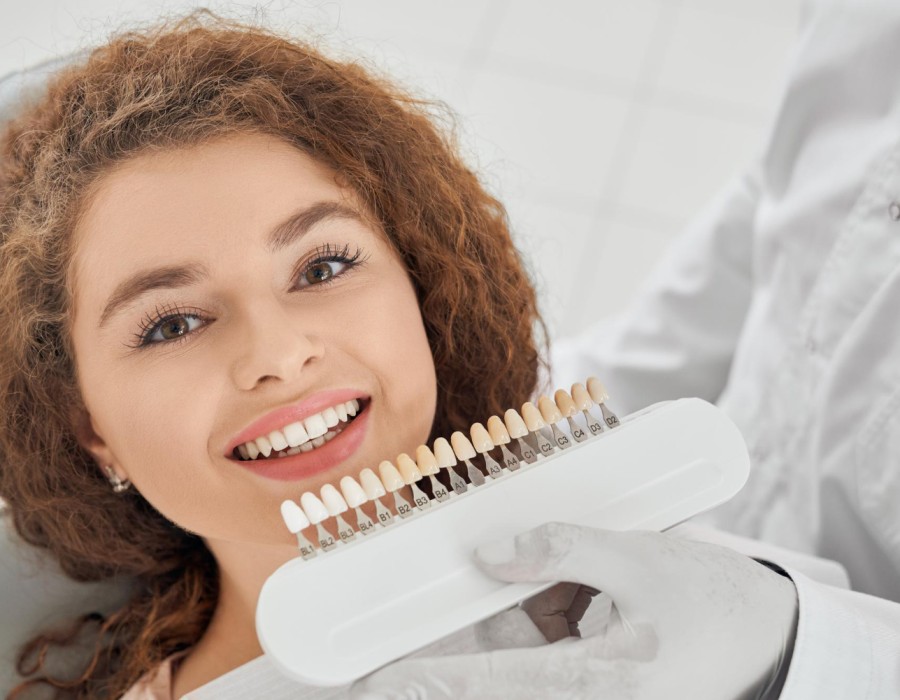In today's image-conscious society, a bright, white smile is often considered a hallmark of health and beauty. As a result, the quest for the best teeth whitening methods has become increasingly popular. From over-the-counter products to professional treatments, the options abound, but separating fact from fiction is crucial for achieving optimal results.
Understanding the Basics:
Teeth whitening, also known as dental bleaching, is a cosmetic procedure aimed at lightening the shade of teeth and removing stains or discoloration. While many factors can contribute to tooth discoloration, including genetics, aging, and lifestyle habits such as smoking or consuming certain foods and beverages, teeth whitening treatments can help restore a brighter, more youthful appearance to your smile.
Over-the-Counter Options:
One of the most accessible and affordable options for best teeth whitening is over-the-counter whitening products. These include whitening toothpaste, whitening strips, and whitening gels or trays. While these products can be effective to some extent, they often contain lower concentrations of whitening agents and may take longer to produce noticeable results. Additionally, they may not address more stubborn or deeply embedded stains.
Professional Treatments:
For more dramatic and long-lasting results, professional teeth whitening treatments performed by a dentist or dental hygienist are often recommended. These treatments typically involve the use of higher concentrations of whitening agents, such as hydrogen peroxide or carbamide peroxide, and may be performed in-office or with custom-made trays for at-home use. Professional whitening treatments are generally faster and more effective than over-the-counter options, providing noticeable results in as little as one session.
Factors to Consider:
When exploring the best teeth whitening options for your needs, there are several factors to consider:
- Treatment Effectiveness: Different whitening methods may produce varying results depending on the severity of tooth discoloration and individual factors such as enamel thickness and sensitivity.
- Safety: While teeth whitening is generally considered safe when performed correctly, overuse or misuse of whitening products can lead to tooth sensitivity, gum irritation, and even damage to tooth enamel. Consulting with a dental professional before starting any whitening regimen is advisable, especially for those with underlying dental issues or sensitive teeth.
- Convenience: Over-the-counter whitening products offer convenience and flexibility, allowing users to whiten their teeth at home on their own schedule. However, professional treatments may provide faster and more predictable results, making them a preferred option for those seeking immediate improvement.
- Cost: Cost is another consideration when choosing the best teeth whitening method. Over-the-counter products are generally more affordable upfront, but may require ongoing use for optimal results. Professional treatments may have a higher initial cost but can offer more dramatic and longer-lasting results.
Debunking Common Myths:
In the quest for whiter teeth, it's important to separate fact from fiction. Here are some common myths about teeth whitening:
Myth 1: Whitening toothpaste alone can dramatically whiten teeth.
Reality: While whitening toothpaste may help remove surface stains, it typically contains mild abrasives or polishing agents and is not as effective as professional whitening treatments for achieving significant whitening results.
Myth 2: Lemon juice and baking soda can safely whiten teeth.
Reality: While these household ingredients are sometimes touted as natural whitening remedies, they can be abrasive and acidic, potentially causing damage to tooth enamel and increasing tooth sensitivity.
Myth 3: Teeth whitening treatments weaken tooth enamel.
Reality: Professional teeth whitening treatments, when performed by a qualified dental professional, are safe and unlikely to cause damage to tooth enamel. However, overuse of whitening products or misuse of at-home kits can lead to enamel erosion and sensitivity.
In conclusion, achieving the best teeth whitening results requires a combination of effective treatment methods, informed decision-making, and proper oral care. Consulting with a dental professional is essential for determining the most suitable whitening option for your individual needs and ensuring safe and successful outcomes. With the right approach, you can enjoy a brighter, more confident smile that lights up the room.






Comments